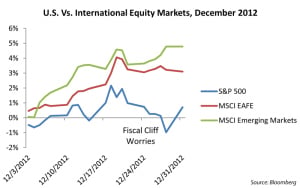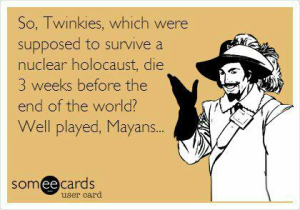Much of today’s press coverage highlights the points I made yesterday—that is, how the fiscal cliff deal hasn’t really solved any of the problems and just sets the table for the next crisis in a couple of months. All true, but we are where we are.
Now, the question is this: How do we prepare for and resolve the next crisis? I think everyone agrees this is no way to run a railroad. What we’ve learned in the latest debacle, though, is that there is a way around the current dysfunction.







